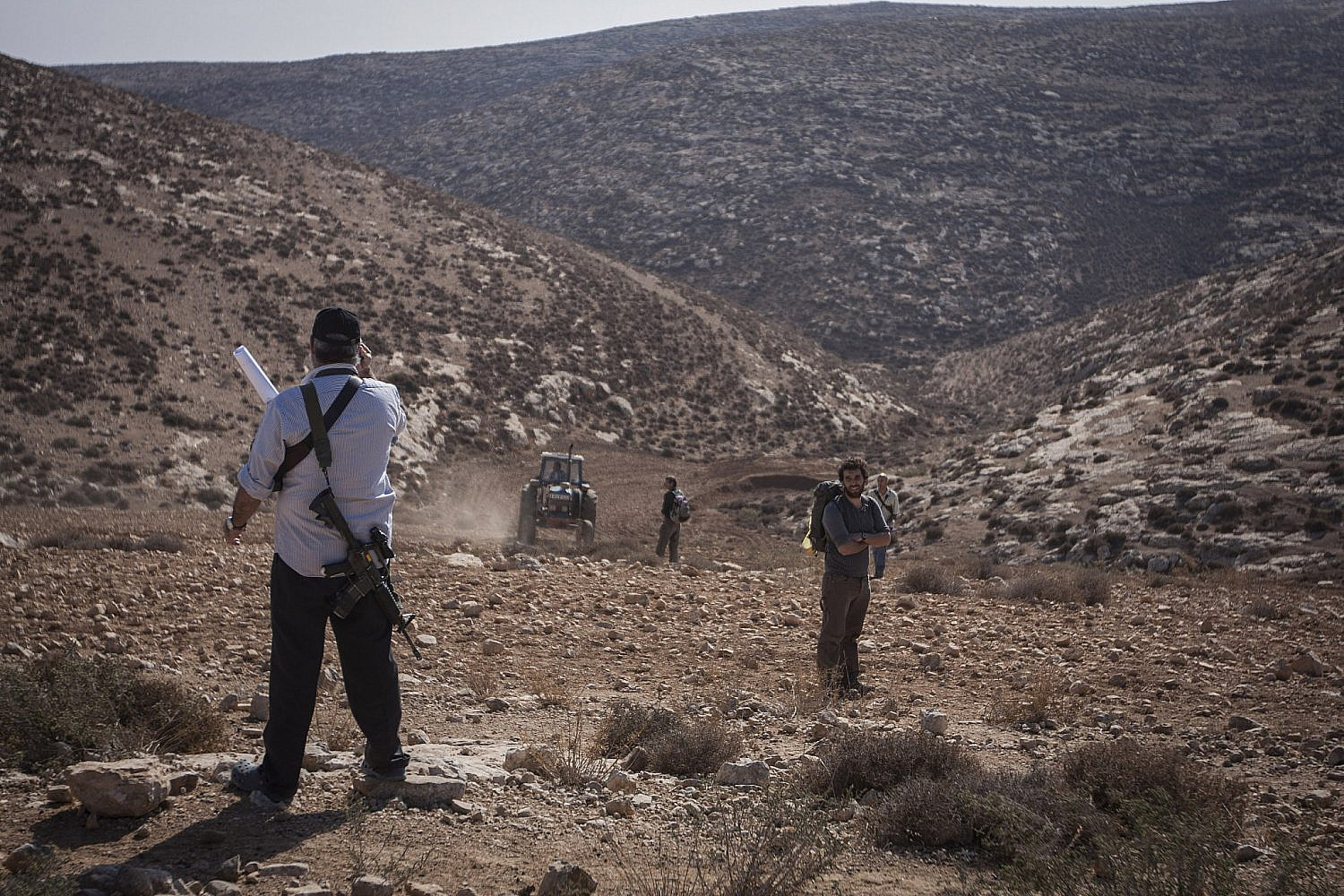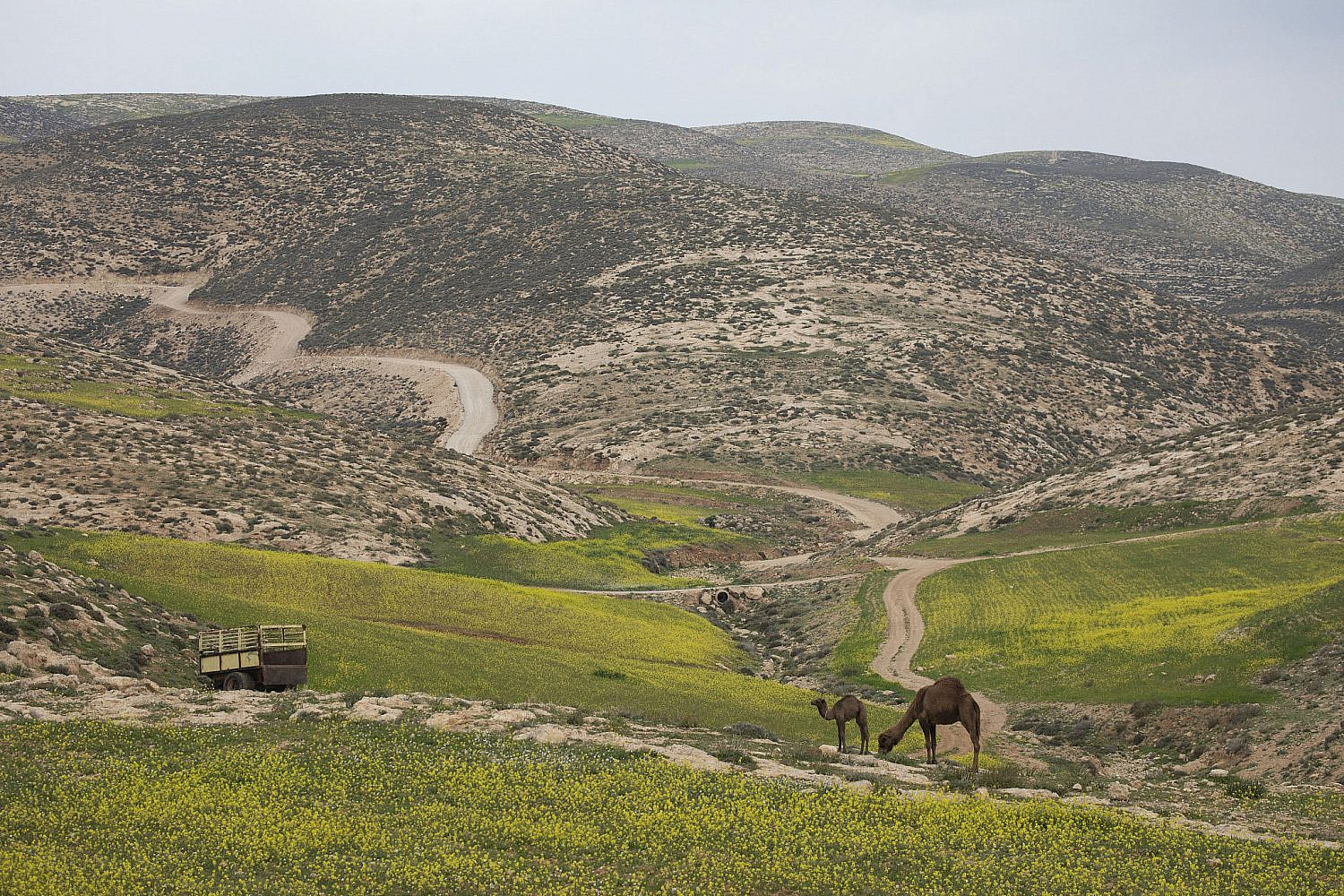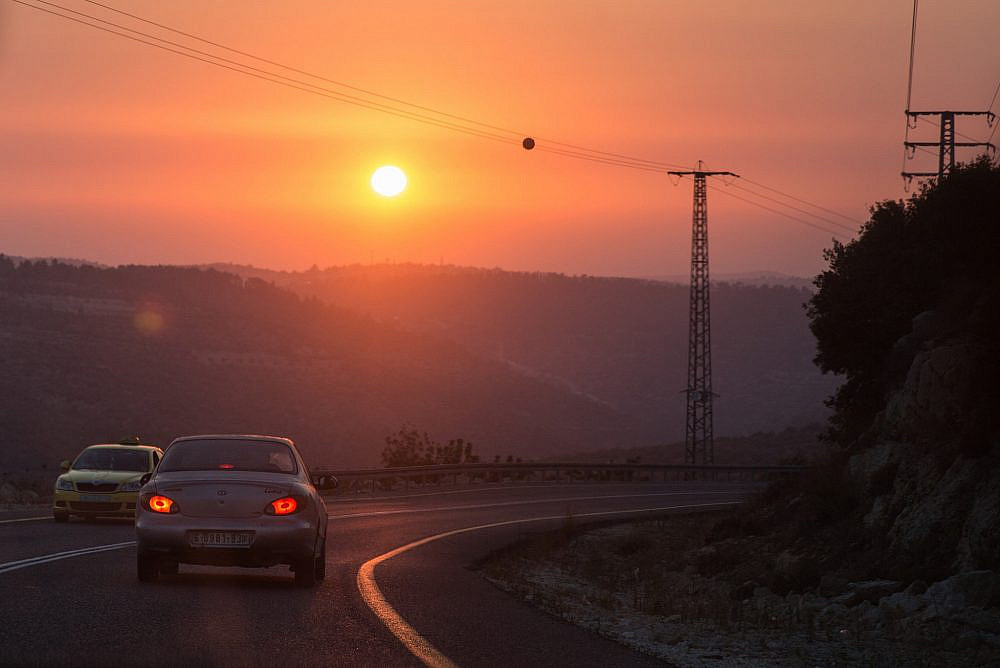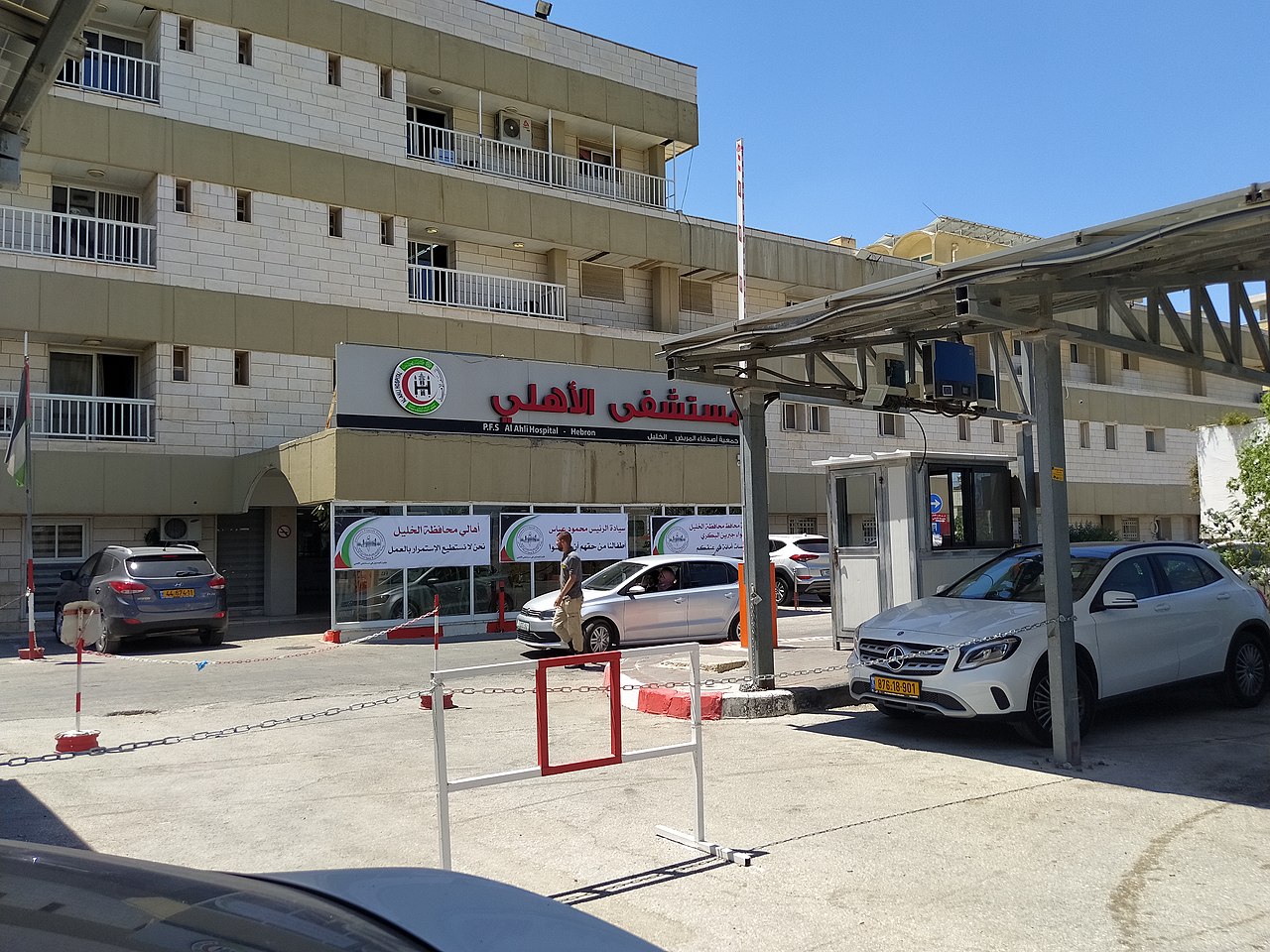In the final month of my wife Rana’s pregnancy, we prayed every day that her birth pains would, inshallah, begin during the daytime, when it would be easier to travel from our village of Tuba in the South Hebron Hills to the nearest hospital. Unfortunately for us, they came at night.
As the pains began, I started phoning several people in the middle of the night to see if anyone could come with a legally-registered car to take us to the hospital. But no one was willing: it was during the violent escalations in May, and Israeli settlers in our area had been throwing stones at Palestinian cars along the main highway at night. My wife’s water broke, and after an hour, I decided that we had no choice but to go in my mashtuba (unregistered) car.
In the South Hebron Hills, which is under full Israeli control, buying a registered car with a Palestinian license plate could cost around 15 times what it should. My current car cost NIS 2,000, and if I had bought a legal vehicle, even a used one, I may have had to pay 30,000 shekels. We are shepherds living in an area that our occupiers have declared a firing zone — we barely have enough money to feed ourselves.
Like any person, I dreamt of starting a family, and got married in August 2020. My wife, who is from Yatta and had lived her whole life in the city, was unfamiliar with our living conditions in the caves and tents of the South Hebron Hills.
A month later, Rana became pregnant with our child. We were happy with the news, but it also meant we would have many difficulties. She needed medical care that was not available in our village, and it usually took two-and-a-half hours across a bumpy and remote road to get to a doctor. Still, when we arrived at the clinic, we would quickly forget our fatigue the moment the doctor told us everything looked perfect and showed us images of our child.
‘Why did you delay her like this?’
As my wife sat in pain in our car that night, we had to decide what to do next. I feared that if I used the highway, I would get us in additional trouble. If we encountered the Israeli police, they could confiscate the car and delay us even more. If we came across settlers, they might throw rocks, cause us harm, or worse.

We decided to avoid this risk, so I took the long and bumpy single-lane road from Tuba through the mountains, where any mistake could leave you falling down into the valley. Driving at night especially, the dust and the dark make it very hard to see. I was driving under pressure; Rana was begging and screaming in pain, and I was nervous and confused. I wanted to drive fast, but the fastest you can go on this road is 40 km/h. I was thinking about the route, the car, my wife, and whether there would even be room for us at the hospital; I remembered when my sister-in-law gave birth last year, they didn’t have any space for her.
After about three hours, we arrived at the hospital in Yatta. It was 2:30 am, I was exhausted and anxious, and the drive felt like it had taken ten hours.
But it turned out the hospital didn’t have room for us; it was so full that there wasn’t even a free chair for Rana to sit on. I got very angry — I screamed at the staff, telling them that this isn’t a hospital, that we were in an emergency, and asking how they could just turn us away like this. But even in my anger, I knew that, because of the scarce resources under occupation, there simply aren’t enough hospitals in Yatta to meet the needs of the growing population.
One of the doctors came and calmed me down. He told me that my wife was very close to giving birth, so it would be best to find another hospital immediately. I called a taxi which drove us for another 20 minutes to a larger hospital in Hebron. I felt very afraid — we had already lost so much time.
At the next hospital, the doctors took Rana straight to the delivery room, and I sat in a corner holding my head. After a few minutes, the doctor came out of the room. I was hoping he would reassure me, or tell me “mabruk” (congratulations), but instead he screamed at me: “Why did you delay her like this?” The doctor said she had lost most of her water, which could be dangerous for the baby and the mother, and that they might have to do a C-section.
Horrible thoughts started creeping into my head, and I got more and more anxious. I tried to ask doctors and nurses what was happening with them, and tried to go into the delivery room, but they kicked me out; there were other women in there who were also giving birth, separated only by a curtain, and so the fathers weren’t allowed in.
Instead, I sat in the waiting room, chain-smoking three packs of cigarettes until 6:30 am, when finally, our baby girl was born. The doctor told me that my wife was fine and that my daughter was healthy; but when I saw Rana, her face was deep blue. I found out later that by the time we had arrived at the hospital, she had gone through the most painful stages of giving birth, all in the backseats of cars.
Born into occupation
The doctors eventually brought the baby to me. I can’t describe how I felt holding my daughter in my arms for the first time, especially after everything that had happened that night. I had carried so many mixed feelings, yet I forgot all of them upon seeing her: I was just happy and wanted to cry.
We stayed in the hospital for another 24 hours to monitor the baby. Afterward, they told us that everything was okay, but that we should be careful with her for the first few months. We took a taxi to pick up my car in Yatta, and then drove back to Tuba the same way we had come the night before. We hadn’t slept at all, and I had to fight to keep my eyes open, but I was relieved when we finally arrived home.

We slept for a whole day, and then finally began to enjoy and play with our baby. Rana and I spoke about how we never wanted to go through such an ordeal again, or to take the risk that our luck could have been worse. We don’t want to have another baby in these horrid conditions, in which from the moment they enter this world, they have to deal with the occupation.
I thought about my parents and all the parents who live in the Yatta area. I was lucky that I had a car; when my mother gave birth, my father had to take her to the hospital by donkey. But what if, in the future, there is a medical emergency in our community, and we can’t find a car or someone to help?
From that moment, I felt I had become a father. I suddenly understood why fathers here are constantly scared for their children, and are always asking them where they’re going and what they’re up to.
After conversations in the village, we decided that we should buy a legal car that can serve as an emergency vehicle for the community: one that can drive on these rough roads, and that will be available for anyone to reach the hospital whenever a woman needs to give birth, or if there anyone is any kind of medical emergency.
After a week we decided on our daughter’s name: Arianna Ahmad Omar Jundiya.


